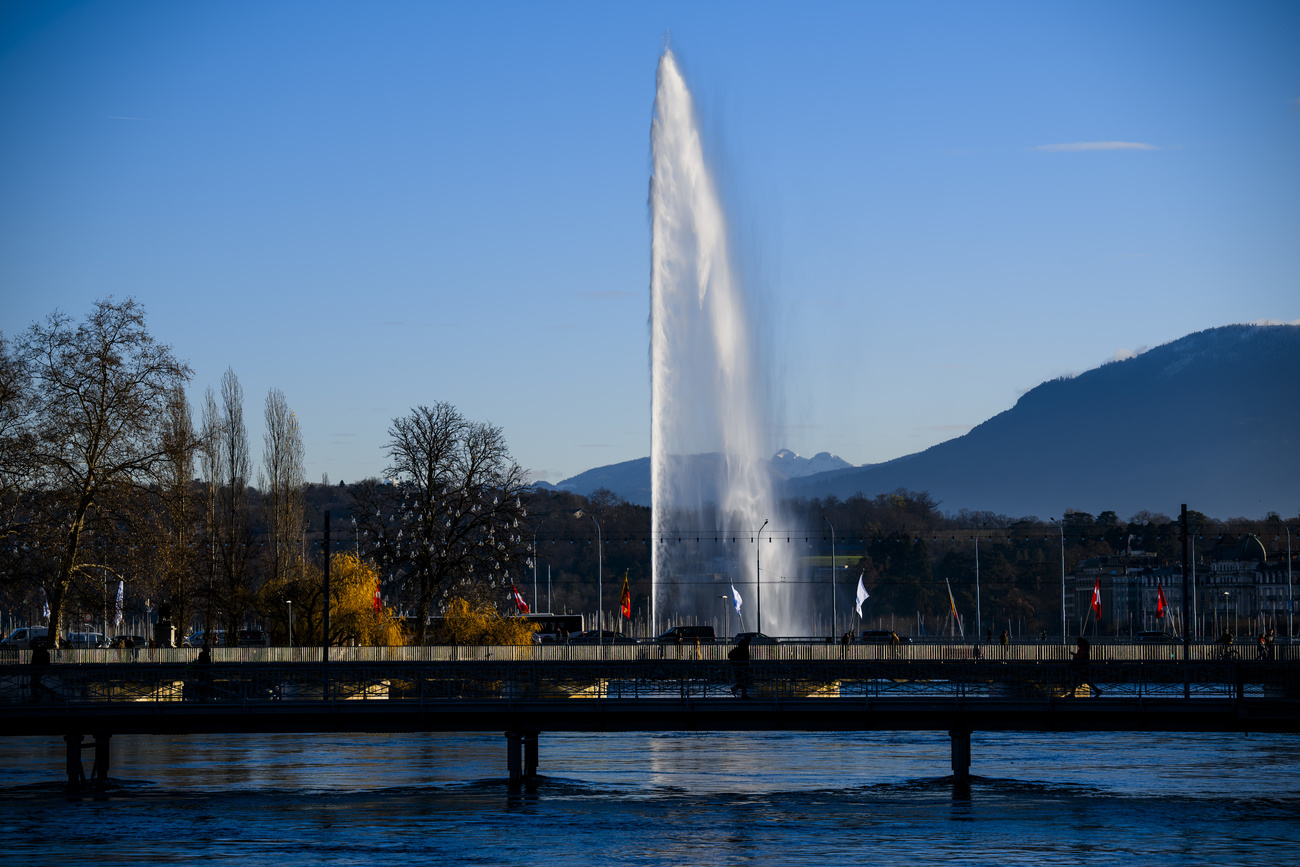
Lake Geneva has never been so warm

Winters are warmer in Switzerland and in recent years the temperature of Lake Geneva has been rising steadily. This is threatening the lake's biodiversity.
What are we talking about? Lake Geneva is getting warmer. This is one of the key findings of a recent report published by the International Commission for the Protection of the Waters of Lake Geneva (CIPEL).
Since 2012, the temperature at the bottom of Lake Geneva has risen by one degree Celsius. At the surface, the average water temperature reached 13.6°C in 2022, an increase of 1.2°C over 30 years.
What do scientists say is causing this rise? “The climate is getting warmer, and this is having an impact on the temperature of the water in the lakes,” explains Piet Spaak, a researcher at Eawag, the Swiss Federal Institute of Aquatic Science and Technology in Zurich.
Measurements have also been taken in Lake Constance in eastern Switzerland, which has also warmed by 1.2°C over the past 30 years.
What are the consequences for the lake ecosystem? “When lakes heat up, they become more stratified. Warm water floats on top of cold water,” says Spaak.
Algae that produce oxygen appear near the surface of the lake. “For oxygen to reach all the zones, a lake has to mix. Normally, a lake cools down in winter and the top layer becomes as cold as the bottom layer,” says the scientist.
But this mixing is not happening often enough. The lack of harsh winters with windy periods or storms prevents the water in Lake Geneva from mixing completely. Lake Constance, for example, has only mixed once in the last 15 years.
What happens when the lake water no longer mixes? The nutrients essential to the development of phytoplankton [microscopic plant-like organisms] accumulate at depth. Phytoplankton form the basis of the food chain. The lake’s biodiversity is therefore under threat.
Is this a concern? “When the lake warms up, certain processes take place more quickly,” says Spaak. If one element no longer functions at the same rate, this has consequences for the others, he adds. “Generally speaking, it’s very worrying that the water temperature is rising so quickly.”

In compliance with the JTI standards
More: SWI swissinfo.ch certified by the Journalism Trust Initiative

























You can find an overview of ongoing debates with our journalists here . Please join us!
If you want to start a conversation about a topic raised in this article or want to report factual errors, email us at english@swissinfo.ch.